Interview with Alice, the Environmental Educator
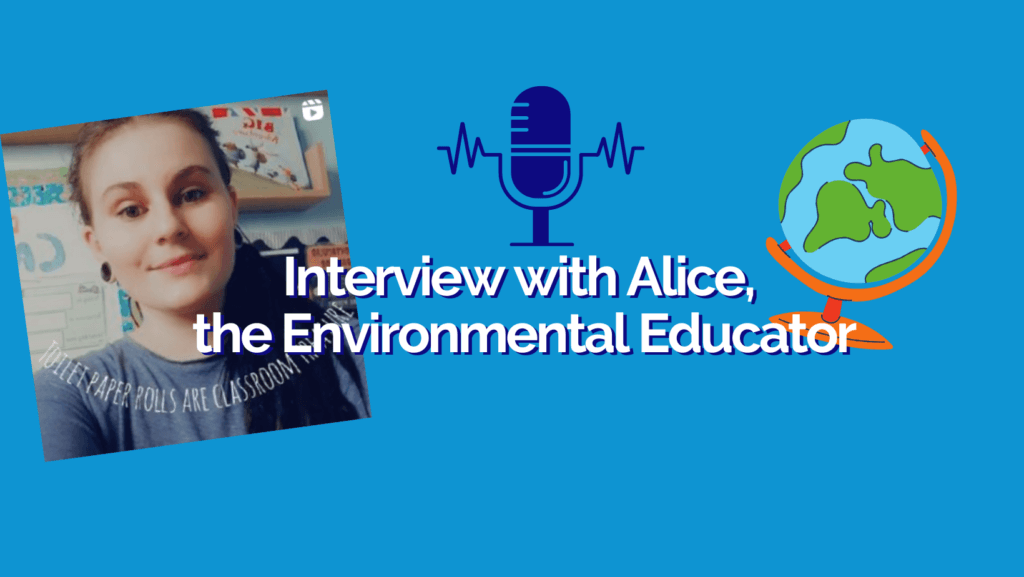
In case you missed it, a few weeks ago Lorraine sat down for a very special episode of The Intrepid English Podcast with her friend and fellow educator, Milica, otherwise known as Alice in Methodologyland, who is particularly passionate about the environment. ????
We wanted to talk about her work educating young children about the environment, some of the problems we’re facing, and solutions.
She explained why it’s so important to explain environmental issues to children in a way that doesn’t overwhelm them.
If you have kids, or if you are an educator, or passionate about the environment, you’re really going to enjoy today’s chat. Listen on all good podcast apps or on our YouTube channel. Find the full transcript below.
Resources mentioned:
Alice’s guest post on the Intrepid English Blog
Lorraine 00:01
Hello, and welcome to the Intrepid English podcast. My name is Lorraine, and today I have an interview for you. I sat down with my friend and fellow educator, Milica, otherwise known as Alice, who is particularly passionate about the environment. We wanted to talk about her work educating young children about the environment, some of the problems we’re facing, and solutions. She explained why it’s so important to explain environmental issues to children in a way that doesn’t overwhelm them. If you have kids, or if you’re an educator, or if you’re particularly passionate about the environment, you’ll love this conversation. You can find a blog post written by Alice on the Intrepid English website, which includes links to all of the resources that we mentioned during today’s conversation. I hope you enjoy it. Thanks for listening. Hi, Milica, how are you today?
Alice 01:12
Hello, I’m doing amazing, thank you for asking, and you?
Lorraine 01:16
Yes, very well, thank you. I’ve had some really, really interesting conversations with people today. So I am fired up, I have to tell you. So, yeah, let’s get straight to it, shall we? So you have recently written a lovely blog post for us and I read it and thought to myself, I want to have a chat with her. I want to get on the podcast with Milica. So why don’t we start from the beginning? If you could introduce yourself, for our listeners, that would be amazing.
Alice 01:46
Well, okay, that’s the hardest question I think. After this one all of the questions are easy. Well, I am Milica, my nickname or maybe future middle name, I don’t know, maybe I’m going to change it legally,is Alice. Many reasons for that, actually. A lot of kids I’ve taught in the past couldn’t pronounce Milica because it’s pronounced like ‘pizza’. So I gave myself a nickname that I really like because like Alice in Wonderland, so that’s kind of the name of my website, Alice in Methodology lens, so it’s a whole story. What do I do? Well, I am a preschool teacher. I’ve completed my bachelor’s degree, master’s degree, and I specialise in teaching English to young learners. So that’s my specialty. Other passions include storytelling, environmental education, a lot of techie stuff like building websites, writing and, you know, none of the regular preschool teacher. hobbies. Um, yes, it sounds so nerdy, but that would be it.
Lorraine 02:54
Wonderful. Nerdy people are the best kind of people in my opinion. So I have… so you mentioned there environmental education, and that is something, that was a reason why we became friends, isn’t it? Because I saw your work about environmental education for preschoolers and I was just so impressed by it because you approach it in a way that’s so unintimidating. It’s clear, it’s fun. And I was wondering if you might tell my audience a little bit about how you got into specialising in environmental education for young learners?
Alice 03:33
Yes, long, long story. Well, being a preschool teacher, you know that in preschool, in Serbia, actually, in this part of Europe, preschool is basically from age three to six, until you start school. But it’s different in different countries. We do have different names for different ages, but generally, we call it preschool. So when you’re a preschool teacher, you actually specialise for teaching all subjects. So you’re going to teach art, elementary mathematics, language development, Serbian, that is, not English, science and all of the other things. When we start with the methodics of teaching, we focus, in Serbia, we focus on the environment. The environment is the first methodic that is introduced in the university, and it stuck with me. It’s basically my favourite methodic, my favourite part when it comes to theory. And also it’s related to my personal life. I am, you know, one of the eco warriors. It’s a part of my politics. I’m not going to discuss that today but it’s basically part of my life. So since I decided to focus on teaching ESL, right, and I wanted to do a lot of clips, so I wanted to do content in English. So it was very natural for me to introduce the environment for preschoolers in English. So it’s a very, very long, long journey, I think. I didn’t know, what do you think? Does it sound like a long journey? For me, it was so natural. It was like, click, that’s it, I’m gonna do this.
Lorraine 05:08
Yeah, it sounds essential. That’s how it sounds, it sounds like something that we should be seeing a lot more of. I think your approach to teaching children from a very young age is… it’s essential, because it really is the most important thing that we have to focus on right now, obviously, as a globe, we’re addressing a lot of issues currently, but none are more important than tackling climate change. And it’s something that we, unfortunately, it’s kind of fallen on to younger people to address this, which is incorrect, I think it’s everyone’s problem. But a lot of the time, it’s the younger people who really feel the urgency of it more than people say, 30s, 40s, 50s and older. So, yeah, young children grow up with this as a central part of their life. And I think it’s, if you don’t address it in the correct way, it can really be a source of anxiety for a lot of children. But you’re addressing it in what I believe is the right way. And that’s why I can’t talk highly enough about you and what you’re doing.
Alice 06:24
I’m going to blush!
Lorraine 06:26
You go ahead, you blush! Haha. And you yourself are a mother as well, so tell me the… how much does that inform your approach to teaching and your general activism, regarding the environment?
Alice 06:41
To be honest, at the moment, it’s not quite connected. As we talked before, privately, my son is autistic, so in that sense, we do have other things to consider regarding his development. So at the moment, it doesn’t inform my parenting because there’s just no place for it, right? He hasn’t developed enough to connect with the natural environment yet, but I do hope in the future, it is definitely going to be part of my parenting. We are trying to spend as much time outside as we can, you know, going with bicycles, because that’s great. When you have a child with special needs definitely helps to spend time outside. There is tonnes of research about it so, well, it does inform the parenting. I like to use, even if we’re not discussing, or we cannot discuss it a moment, natural issues in the environment or do more complex things like I do with other kids, I do tend to use more sustainable toys. So a lot of wood around, a lot of toys that are gifted from something… from someone, not ‘something’, pardon me! A lot of pre-loved books, and a lot of natural materials like wood, branches, twigs, the leaves, the sand. I’m looking at some sensory boxes now and I’m I’m listing what I see. So I do tend to try to use as much recyclables as much natural materials as I can. But I hope, as you said, it’s going to expand as he grows up. That’s it at the moment.
Lorraine 08:16
So let’s talk about the blog post that you’ve very kindly written for us. It’s something that’s a little bit different to our normal type of blog posts. So it’s entitled ‘Five Reasons Why it’s Important to Teach Kids about Environmental Issues (And Problems and Solutions)’ Can you tell us a little bit more about the background to this article, and then we’ll talk about the specifics of what you teach in this blog post.
Alice 08:43
Of course, and it says in the article, I’m just going to read the first two short sentences. “‘Environment’, such as scary word, right?” I think that answers the need for this article, because when we say ‘environment’, we all feel something I imagined I called it ‘global guilt’. So all of the adults people, we feel a little bit uncomfortable. I don’t know if you feel that way, but when somebody says ‘the environment’, my thoughts are not very positive. I kind of feel guilty for things. So, I mean, of course we shouldn’t do this with children but another way to overcome this ‘global guilt’ or as you mentioned, environmental anxiety, is to reconnect with nature, right? As I said, it is very simple. This sounds very simple, but sometimes it can be very hard. For example, as I said, I am a parent with a child who has developmental difficulties. And I’m also a teacher, so I don’t have a lot of free time. A lot of parents are like this. A lot of parents work, a lot of parents have one child, or financial troubles. So connecting with nature is not a first thing on their list, right? As far as I um, from my perspective, I think. So this article aims to show you some very simple ways you can reconnect with nature. And you can do it very easily. You don’t have to spend any money, because we all constantly think about not spending money, and of course, doing small things every day. So it’s very easy to do it, even if you are a person, even if you’re a single mom, a person with a lot of children, or if you have any other obstacles, so to say, to nature,
Lorraine 10:32
That’s right. It’s so true. We have so much nature around,many of us do, have so much nature around us. But sometimes we need a little bit of encouragement and some tips, really, of how to build that into the interactions that we have with kids, and, you know, our family members. So it’s so important that you have found these really fun and easy to follow ways to really build nature into our day, especially for parents. Would you like to go through the article and list, what kind of activities do you suggest in this article?
Alice 11:11
Well to start off, the basis, the foundation would be to discuss nature, not environmental disasters. That is basis for any positive development. I also do this with the young learners in my workshops, so I never discuss only disasters or environmental devastation, natural devastation. We are trying to discuss the nature itself. So, that’s the problem. There is a lot of natural devastation. We destroy ecosystems every day. That’s that’s the sad thing. As I wrote this article, we had a very, very terrible moment in Serbia where a whole pond, which was endemic, so you know, what is an endemic pond? It was basically destroyed because they put gravel, construction gravel, I think… I do think they call it a gravel. It’s a kind of a sand, right? To recycle it. So in order to make the construction more eco friendly, they dumped everything on this pond. So, yes. It was a bad moment when I wrote this, but it was still positive. I don’t know. How was it positive? I remember crying that day. It was very depressing. Anyway, that was a problem. But if we start by discussing these problems, and just focus on the problem, they’re not going to do anything. So here’s the solution. I always advise to parents and teachers to pay attention to local things, things that your child can particpate in, something that you can impact on, even if it’s just a little tiny thing like cleaning the park or making a competition, that’s a bigger one, or explore animal species and plants you find locally. Why is this good? If you include… if you start talking about the polar bear issue, that’s very… that’s something I love. And one of my colleagues, Ben, he also discussed the polar bear issue. In the ESL textbooks we have, like, these polar bears and our children live in Europe. I mean, for example, the European textbooks, why are we having a conversation about polar bears? We should be discussing local things such as, what were the animals that lived in this pond before it was destroyed? What’s an endemic species and whatnot. So always pay attention to local things, try to focus on anything that’s connected to nature, and don’t focus on the bad stuff, because that is not going to motivate your children to do anything. Why is this beneficial? If you discuss local issues? Well, your children have a chance to explore, connect, right? And if you involve them locally, they become more confident. So maybe at least one of the five kids who is involved locally, who knows what’s happening on the local level, or what do we have around us, is maybe going to make a change. So we need one in five, like one in five, I’m being very… I’m setting the bar very low. But that’s that’s it.
Lorraine 14:19
That’s so sad what they did with the pond, by the way, oh my gosh, that’s so, so sad. Then it really needs to be a connection between the education of our youngsters and you know, they are the future! They are the people who are going to be growing up to make these policy changes. So it’s so important to, yeah, to help them out and to get into that. My… I actually have a mentor. She is trying to find clients anywhere in the UK, who are at the beginning of their journey in politics, because she wants to mentor them, so that they… so that good people get to the higher positions.
Alice 15:02
So, let’s talk what can we do with the youngsters, right? Yeah.
Lorraine 15:07
I really like how empowering your vocabulary is, with this particular piece of advice. Milica. You mention describing your young learners as ‘Planet Protectors’. I just love that. It gives them a sense of agency, and a sense that they can actually do something, and they really can.
Alice 15:26
Well, I actually got this idea. This is a paraphrase. If you go to National Geographic Kids, there was a certificate you could print out to your class, it was I think called like, ‘Eco warrior’, but eco warriors do tend sometimes to have like negative connotation, like you are the hoarder who collects a lot of stuff, which is literally me, because I’m looking around the room, there’s like, a lot of stuff! So I just, I renamed it to planted protectors. So not to focus on recycling, but to focus on, you know, the bigger picture. So, ‘Planet Protectors’, yes.
Lorraine 16:03
You know, kids grow up with superhero movies and toys and things like that. So it’s, you know, it’s allowing them to feel a sense of, well, I’m the hero in this story, and I’m actually going to make a change hopefully going forward. Your next activity is entitled ‘Grab every possible opportunity to interact with nature’. Would you like to tell us more about that?
Alice 16:26
This one comes out of desperation. There are not enough green spaces. We live in these concrete blocks. I live in an apartment building in the rooftop so talk about nature, right? So, in front of my building the whole boulevard, it’s a very big boulevard, there is one big tree, and this tree is in my yard, in the yard of our building because there is a play… play house? Play… how do you call it in the UK?
Lorraine 17:02
In the tree? Tree house?
Alice 17:03
No, no it’s not a tree house. It’s where you go to celebrate children’s birthdays and it’s like a play room. You can get injured there, there’s like a cage and you can climb there and stuff. Because of this play room we have the only… the biggest tree on the boulevard. So ,what’s the solution? Explore anything you have, even if this is just this one tree, right? This is a piece of land, a piece of treasure. So here’s a tip. Explore any trees in the street while you are passing by. Name them, take photos, you can search, you can identify them. There was an app called ‘Inaturalist’ I believe, you’re going to have to check it out. There are also other apps where you can indentify leaves for example. Even if you don’t have trees you can look, peek a little into people’s yards, look for some flowers, right? That is legal in Europe, you can peek through people’s yards. Don’t do it if you’re listening from the US. I know some people might not like this. They really like their privacy, right? So be careful. Be careful where you do it. Now, let’s discuss a few other things. Creepy crawlies. Yes, creepy crawlies! Creepy crawlies are all little insects, we call them ‘creepy crawlies’, so you can make like an insect hotel, or even a bee bath. I made a video on my Instagram about bee baths recently. So basically, it’s like a little, little container like a bowl of water, and you put a lot of rocks and just a little bit of water on the top so the bees can stop on the rock and take a little sip of water because in the city, they don’t have any water resource. So basically, all of the little things that you can do with this tree, in this play room in the yard in front of our building, I actually made a lesson plan around it. And it was a lesson plan where you celebrate this tree like write a poem, do a haiku, or basically become friends with the tree. That’s like THE tree, that’s the only one. So, why is this beneficial? Even if it’s a little bit of greenery? Even if it’s a little bit of nature, we can understand that we are co-habitants, so we cohabit the space with this little tree and we have to respect it, even if it’s, I’m repeating, ONE tree. So, cohabitation. That’s why I’m saying grab every opportunity to interact, no matter how small.
Lorraine 19:26
Yeah. So this is the thing, this is the first step is to appreciate what we do have and then hopefully that will grow into a love and respect for nature in general, which will hopefully mean that in future there will be more green spaces because, you know, it’s instilled in us then that it’s important to be surrounded by nature. There was… I’ve seen a great lesson plan recently on how trees can have historically affected the evolution of cities you know, and even now, even though we have, you know, concrete buildings everywhere, having trees nearby, it’s such an important thing for the mental health, nevermind the physical health of the city’s inhabitants. There’s an area of Copenhagen I think, where they have an entire neighbourhood where you are no further than two blocks away from a park at all times. There are so many parks there that you are always close to a park. And in cities like Singapore, having trees in the city, and beautiful, these beautiful super trees, if you haven’t seen them, Google ‘Singapore super trees., They’re amazing, aren’t they? And they have so many trees, that they have lowered the temperature of that little region and therefore require less energy for air conditioning. So, trees are magnificent things and more and more now, city planners are recognising the importance of trees. But if you are in a place in the world where, there are many, many places like this, which don’t have that much nature, there is still a way for you to find nature and converse with it, to respect it and appreciate it. I love that tip. Really great.
Alice 21:24
Exactly, exactly. Even if it’s a little, little creepy crawly, one leaf, one tree, it’s enough.
Lorraine 21:31
It’s enough to start. Okay, cool. Your third tip is to make small green changes every day. I love this tip. Can you tell us more?
Alice 21:41
Well, you know, as a family, it’s very hard to try not to produce so much waste. I mean, you don’t produce it, it’s already been produced. That’s my point. So if you buy something, you didn’t produce it. It’s already been made. That’s the sad part. But yeah, let’s not talk about consumption and overproduction. It gets political really easily because it is political, right?
Lorraine 22:05
Yeah it really is, yeah!
Alice 22:06
Really political, so if we said it wasn’t, it would be a lie. So, since it’s already produced, it’s already there, somebody is going to have to use it. But you cannot make sure all of your products are green. That’s practically impossible, you would go crazy. Zero waste is a nightmare. I’m sorry, I’m sorry, guys, if you’re into that. It is just a psychological pressuring, and constant torture to collect a jar of trash for a year, so that does not help anyone except make us feel dirty, right? When we see, like, your jar of trash you made in a year. So, we should try to make at least something green. So make a list. Analyse your household. Here’s a tip. Have your child help you with a grocery list. Your child can be a ‘low waste explorer’ or ‘eco warrior’. So, send off your child, if your child is too big, of course, I’m not giving bad parenting advice. If you are not free to let your child roam around in the store, please don’t do it. Yes, please don’t do it for safety reasons. Of course, try to give your child a test. Go find this without plastic packaging! Go track your consumer habits. This is very cool, I had a project like this a few years ago, when I had the National Geographic certification programme. And there was a project where it was called ‘Perils of Plastic’, and in this project, the kids had to collect all the trash their family made in a week. And then when you do this, you’re going to see, what are you producing? You’re going to see what’s the biggest problem. Is it plastic? Is it any kind of metal? Is it non-recyclable? Is it food waste? So you can put it and then you can calculate and you’re actually going to see what you make in a year. That’s a terrifying thought but you can easily calculate that. You can just multiply it and see what you make in a year. What trash does your family make in a year? So a tip would be to try to eliminate at least something. For example, in my case, my beauty regimen oh that sounds very, very elaborate. So, I don’t use any kind of cotton, I always have reusables. For example if I’m going to clean my face or makeup, or do any skincare, all of the products that I have are reusable. Nothing is made from a single-use cotton. That’s another thing, so it’s focused, our low waste lifestyle is focused on the bathroom and hygiene products because sometimes we cannot be picky with food. Having a child who wants to eat special things, that does not allow you to be picky so you have to buy this brand, you know, that some children on the spectrum like to focus on, like to fixated on this specific cookie. So you have to buy the packaging. So don’t feel guilty, every family’s different. Try to find the things that you can eliminate that are easy. Find something that doesn’t make it hard on yourself. We use, for example, reusable nappies. So that was easy. We washed them, we dried them, perfect. And that’s a lot of waste eliminated. We don’t use single-use nappies. So that’s another you can try.
Lorraine 25:30
Well done. That’s a big one, wow.
Alice 25:32
That’s a big one. Less poop in the world. I mean, yeah, kinda less! Haha
Lorraine 25:40
I really liked the way that you said, don’t feel guilty, because I think we’ve kind of, since the world has woken up to this kind of thing, since the world has woken up to their impact on the environment, there is a lot of guilt that goes along with it. And that is really tough for parents of small children. It’s hard enough, especially if you’re trying to juggle jobs, and a child, and all of the other things that we have in our busy lives right now, a lot of people feel guilt and then switch off to it, you know, they just think oh, like, there’s nothing I can do. So I’m just going to do nothing. But they’re, you know, it’s much more important. And this is something that we really feel at Intrepid English as well, you have to meet people where they are, and gradually encourage them in a direction which is positive, you know. And that doesn’t mean like, you must feel guilty, because you are not, yeah, producing a tiny, tiny amount of waste every year. That’s unrealistic.
Alice 26:37
And remember, you’re not producing it. It’s already being produced. It’s already been made. You are the consumer, and sometimes you’re forced to buy something. Not everybody has a store where they can buy things that you can take in a glass jar or in your own container. So, definitely the fault is not on the consumers. The fault is always on the industry. This is what we have to realise. Because I do think people focus on their own problem, while industries are making bigger problems. So we should focus on maybe changing how the industry works, right? But that’s again, every every thing that we can do with parents is kind of political. Going in circles, but for the kids, yes, anything that they can do, is amazing. They are going to feel amazing.
Lorraine 27:29
Yeah, exactly. I read somewhere today, actually, that the phrase ‘carbon footprint’ was created by an oil company. They’re marketing in order to make people feel like it’s, you know, their problem. It’s their faults.
Alice 27:42
Yes, yes, I actually… maybe you saw it on my story! I shared this a few weeks.
Lorraine 27:46
Oh did you? Oh, no, it was on reddit today.
Alice 27:47
Yes! Ah, it was on reddit! Yes, I shared it. I can’t remember but it was one of the biggest oil companies and they popularised it, they actually paid so much money, I think, to popularise this term, which is, again, capitalism, it’s insane. They paid money for marketing, to popularise this to put the guilt on the consumer. Yeah. Ridiculous.
Lorraine 28:12
Oh, it gets so political so quickly, doesn’t it?
Alice 28:15
Yes, let’s talk about other things you can do with the kids.
Lorraine 28:17
The thing is though, I want to accept that this is a really political thing. And the more you learn about a subject, the more you realise that things are interconnected. So earlier today, I interviewed a friend of mine, who is a diversity and inclusion consultant. And she and I had a massive, massive chat about all of it. And we were just saying how interconnected everything is and it’s hard to discuss anything beyond a superficial level, in a way that doesn’t get political, or it can get intimidating for a lot of people, and there is a space for that. There is a space for that. But I think a lot of the time, the students that I teach, their understanding of a lot of issues is a lot lower than we might enjoy here in Europe, because they come from a culture where it’s not discussed. So they are eager to learn, they’re eager to improve but overwhelming them with a whole new set of vocabulary and ideals can be very intimidating and turns them off. So meeting them where they are is something that we really try and do and it’s so great when they develop this vocabulary and this web of knowledge, which grows, and we can just deepen that discussion and we can explore things together. For example, one of my students, she lives in Russia, and when I first met her, she wasn’t… she didn’t even know really much about feminism at all. And it’s something that I’m particularly interested in. It came up in conversation and she was interested in learning more about it. And over the years that we’ve discussed this topic, she’s become more and more interested, more and more knowledgeable. And she’s been actually a really great influence on the women around her in her society, and her friends and family. And it’s amazing that they, you know, that their minds are being opened, due to her having English lessons with Intrepid English. So you never know when you can make a difference, really.
Alice 30:30
Yes, one child at a time. That’s the benefit of content, you’re introducing some content. And for me, it’s always on developing 21st century skills – critical thinking, creativity, communication, problem solving, you know, collaboration, the four ‘C”s, the big ones. All of them lead to them becoming more responsible adults. So whatever my ideals are, I’m never going to do this with children. I just set the story, start an inquiry, explore, and let’s see, what can you deduce? You’re going to do the same thing as I do, because that’s the logical one. But you’re too young to understand. So we’re doing, we are building critical thinking from the young age. This is why it’s very important. But I’m very curious to maybe do something with teenagers in the future to see, did it have any? Did it have any influence, any effect. Because I believe that after, in many schools, I’m not talking in general, but in a lot of schools, this focus on the environment stops. You have one subject, that’s like science, and then you have biology, geography and history when you’re young, at least in this part of Europe. So your science is jumbled in one subject. And there is no, you know, like in preschool, there is no focus on the environment. So I think this is where we lose them. We kind of lose them when they start school. Of course, not everywhere, there are amazing programmes, amazing teachers. But as you said, interdisciplinary learning. This is why just teaching a language is not enough for me. I like interdisciplinary learning, definitely.
Lorraine 32:11
100% We’re very much like that, you know. Our values are at the core of everything that we do at Intrepid English. And they, you know, it’s not just English grammar. We’re teaching people how to be, and this was lovely feedback I got from a student’s dad recently, I don’t know if you saw I posted it online. We don’t teach kids normally. But we’ve been teaching this child for a little while. And her father said not only did she learn English, but she also learns how to be a better person. And that meant so much to me. So, so much. I was so delighted by that. My teachers do an amazing job of teaching, you know, how to be… it’s not teaching, for example, negotiation skills or meeting skills. It’s teaching them how to be confident and effective and successful and likeable, at the same time. And I don’t just mean like likeable is the main goal, but I mean, how to really just succeed at work. It’s more than just having the vocabulary to negotiate. It’s about being a great employee.
Alice 33:15
A lot of skills! A lot of skills. Actually I’m retaking, I told you I do have a TOEFL. I hope I spelt it nicely! Spelling out loud is a really bad thing for me, I told you why haha. I decided to retake the TOEFL test just to get like, one extra qualification. And I was reading, I was doing the programme yesterday. I was reading something about language skills and systems, and basically it separated learning English into ‘skills’ and ‘systems’. ‘Skills’ are of course the four skills – reading, listening, speaking writing, and ‘systems’ focused on the grammar, lexis, and I think it was functions, right? But the truth is, it’s not that way for me. You have to add the 21st century skills and as you said, soft skills, how to communicate, how to discuss certain topics, how to succeed in the world. We have to add the soft skills in English, and we have to add the 21st century skills into the system. So, maybe it’s time to redefine the TEFL courses.
Lorraine 34:23
Definitely. Someone I’m really interested in following,Simon Sinek, he says that there are skills and there are human skills so rather than ‘hard’ and ‘soft’ skills, he says they are human skills. We shouldn’t think of them as luxuries, you know, added extras. These are essential. Yeah. 100 percent.
Alice 34:42
Yes, yes. I completely agree with you. Yeah, I don’t like the term soft skills because it’s often only mentioned in team building like ‘agile manager thing…’ and you know, IT companies, you know, everybody has soft skills. Come on people!
Lorraine 34:56
And we all need to develop them! We all need to improve them, as well. So, the fourth of five activities, and this may be one of my favourites, it’s hard to say, ‘Outdoor learning is the way to go’. You have been such a big influence on me with this, by the way. So with my niece, yeah. And I take her outside. I’m so delighted that you’ve taught me some of these skills, Milica. Would you like to tell everyone about that?
Alice 35:23
Of course, well, again, a quote. A quote from me, to me. Actually one of the educators, he’s a very big environmentalist, so you can maybe check out ELTSustainable and we discuss ELTSustainable, yes, and Owain and I discuss a lot of things. We do discuss things all the time. And one of the discussions, I randomly said, “We talk about nature without even talking about nature.” And he said, “Oh my god, I’m writing this down! I’m gonna use this quote.” I didn’t even think about it. But it’s actually really good. We do, we constantly talk about nature, we don’t even talk about it. We just talk about, “Hey! This was destroyed. Hey! That was destroyed.” How is it possible? We are distanced. That’s the problem. We’re distanced from the natural world. A few months ago, I went to a forest. It was beautiful. You can see the pictures here in the blog post. I think I shared the photos with you. It’s so amazingly green. It’s like the greenest thing I’ve ever seen. I was shocked. I was like, nature’s this green? Because I didn’t have time. I’m serious, I didn’t have time to spend to go to a location like this, and we actually fell asleep outside. The birds were all happy, “Whoododo”, doing their thing. And it was amazing. I was depressed. We spent like five hours there. We went back and I was depressed. I was like, please bring me there!
Lorraine 36:51
Ahh! Withdrawal symptoms from the forest.
Alice 36:53
Yeah, definitely. So, whenever you can go, it’s basically like, I don’t know, a piece of grass, small park… just watch a video. I know it sounds very silly. But even if you can go ahead in a moment. We got a new TV so we went and played some 4k videos like nature around our country, and nature in the neighbouring country, in Bosnia. And there was a, I have to tell you this, it’s so irrelevant, but there was a location where they have wild horses. They have this whole like, reserve, with wild horses. They’re just being wild horses in the middle of Europe. And I was crying. I watched this for like ten minutes. I was crying. It’s amazing. So even if you can’t go outside. Even if you can’t do other learning, even a video can wake up these emotions. Yes, emotions, that’s the way to go. But if you can go outside, don’t be afraid to get dirty. So, we went with our son there, we just let him do anything except eat unidentified things. That’s the only problem. Let the child get dirty. Let a child touch whatever he or she wants, whatever they want. That’s that’s the way to go. Why? Because children are focusing on their senses. So they’re going to learn about the natural world through their four senses. They’re going to have an amazing sensory experience like touching their textures, exploring the sounds of nature. You also have a few apps that I think identify the sounds of birds. So my niece, when we went with her, she actually she was recording, she was like “Quiet, everybody! Don’t move, don’t speak!” And we were like, okay, what is happening? She put on her phone. She started recording the sounds of birds. I was like, okay, so you just gave me an activity. Thank you, child. Because I never like.. I couldn’t remember that! Wow, that was amazing. So yes, I feel guilty. I don’t spend enough time in nature. I’m going to be honest with you, I have no time. But I’m actually fixing up my bicycle. So we plan to go on bike rides as a family very soon. So I’m so happy about it. Whatever you can do is fine. The easiest thing you can do outside is collecting natural elements. So in this picture, I’m going to describe it and share with you. This is a picture. This is basically like an egg carton. And here I drew leaves, acorn, some twigs, branches, grass, feather. It was I think one of the pictures has ferns because forests in Europe have a lot of ferns. Flowers, shells, anything just collect them. Make a natural nature scavenger hunt. Other things include like nature weaving, that’s a very fun thing to do. You take a piece of cardboard, some string, and then you weave. You make, kind of a, nature tapestry to get that tapestry. Very, very Shakespearean. But yes, take a look at the picture in the blog post. You will see like a nature weave. Anything you can do, basically that’s amazing. Another cool activity for outdoor learning is building little houses from twigs. You’re also including engineering and science, you take a lot of twigs, build a house, it’s a cool one. I do think I’m going to share maybe some materials with you. I’ve recently made some, like, materials to identify trees and something for the sensory experience, but they’re not published. So maybe I’m going to give you a link. You can link it for free in the article. Anything you can do. Basically just use whatever you have around you and go outside. Even sit, even just sitting is, as you said, beneficial for your mental health.
Lorraine 40:47
Yeah, absolutely. I’m thinking of a really sweet little moment where I was looking after my niece. We made a little birdhouse, which we painted. And we went to feed the birds. We went to fill the bird feeder. We’ve got some, like, dried mealworms. So, you know, even though it’s I find it a little bit disgusting, I was like, I didn’t want to make her feel that it was disgusting. So I was like, you know, trying not to, you know, pull a face or anything. And we filled up the bird feeder, and then she just sat there on the stairs. And she was just saying nice and gently, she was like, “Come on birds, your dinner’s ready!” Just sitting on the stairs for ages just happily waiting for the birds to come and have their food or check out their new house. And I just in that moment just felt so deeply, deeply in love with her. Like, oh, wow, she’s so lovely. “Come on birds, dinner’s ready!”
Alice 41:49
Kids are very honest. This is why, I mean, I do like adults, I do like teenagers. But I love the little ones. They’re so honest, they’re very genuine. So this is why, this is what I do with kids into my online workshops. We can chat about that to finish off. This is exactly what we do. If there’s anything that draws your attention, we stop there. We’re doing an inquiry, we are exploring. I don’t know anything about it, we’re going to check it out together, or we’re going to form sentences to google it. We’re going to analyse a video, a text, a picture. So we’re going to do an inquiry, we’re going to explore it together. So last time, as I said, also, it was my niece who made the nature weave in the picture. I sent her on this nature scavenger hunt, she climbed on the top of the, it’s like a little mountain, she’d climbed there. And she was just shouting, “hey! hey!” to hear the echo. So she was there for like, one hour, I don’t even know what she did. She didn’t want to come home. And she collected like a, I don’t know, just a little bit of flowers and leaves, and she was there for an hour. So yes, let them do whatever they want to do. And they’re enjoying it, I’m sure,
Lorraine 43:07
As we talked about a moment ago, it’s really important to meet people where they are and gently encourage them towards you know, improvement. And that’s something that you and I both have in common as values. And it’s so great to hear you with all of these ideas. It sounds so easy, it sounds like these ideas just come to you easily. But for a lot of people we might be at the beginning of their journey with checking out nature with their kids, maybe homeschooling over the last couple of years has been really stressful and maybe a lot of people, you know, don’t really know where to start. So one thing I find just absolutely invaluable is that you offer free workshops. And, would you like to tell our listeners about these free workshops, for those of us who are just starting out on this journey with, you know, indulging in nature.
Alice 44:01
Sure. So instead of constantly talking about the environment, and you know, pushing sustainability, as you notice, maybe I didn’t say sustainability not even once in this workshop. In this workshop… sorry, in this podcast. Why? Because focusing on sustainability again, for me, and in my world is really not the answer for everything. First we need to explore it, love it, and then we’re going to understand why do we have to make it more sustainable. So it’s the other way around. The sustainability comes in the end. So in my workshops, for example now we’re going to start. In October I’m going to start our first big Halloween month so it’s going to be a full month of Halloween. And in this, yes, and of course, this is some, these workshops are paid because it’s a lot of work, but I’m of course going to have extra free ones. That’s implied. And in every workshop, we do tend to have a little green twist, for example, one specific workshop is going to be related to green Halloween. As we know, in many countries, there’s a lot of junk and trash left after Halloween, a lot of pumpkins are being thrown away, because people just make this in the decoration, throw it away. A lot, a lot of packaging from candy, terrible, terrible, terrible stuff. So there is a big pile of trash left after Halloween. So whatever we’re doing, we’re focusing on these green bits, right? If the workshops are completely environmental, then I focus on, for example, just as you said in the free workshop, one of them was related to experiments like water filtration, another one was related to save the planet escape room, like a fun online escape room where you have to save the planet, learn, do a quiz, and basically, in the end, you save it. So in these workshops, whatever the topic is, my point is that there is a green twist. So it’s not a specific workshop where we talk about Earth Day, once a year, we talk about it constantly. And this is this is how I think,I believe, I’m sure, it helps a little bit more than just focusing on a few lessons per year, few workshops per year. I do these workshops every month. It was a pause. We had a pause in August, because I wanted to have a little pause. But they’re going to, yes, I needed a little break. So we’re going to start in September. And then we have these workshops around four or five for different ages every month. So, why, why would you join? Of course they’re completely free. And your kids will meet children from all over the world. So far, I had kids from Poland, Nigeria, Turkey, Spain, UK, Mongolia, Russia, it’s just unbelievable. I share it online, there are a lot of interested parents. So it’s always amazing. And we focus on speaking. So personally speaking, inquiry, exploration are my… and storytelling, of course, are my favourite methods. So whatever we do, we’re mostly going to spend time speaking. So if you want to join, you’re free to join.
Lorraine 47:18
I’ll be of course, adding links to all of this in the Episode Notes. Yeah, Milica, what you offer children is, and parents, to be honest, is just so special, unique and really inspiring. So I can’t do enough to recommend you and your wonderful, wonderful workshops. And I am personally a massive fan because it helps to kind of demystify the, you know, I don’t have children myself, but I look after my niece quite regularly and you know, for someone like me, no training in childhood education at all, I can follow along with this. It’s so easy and simple, and it’s really enjoyable and fun. And my niece loves it as well. So yeah, absolutely fantastic. And I can’t recommend you enough. So thank you for joining us today. Thank you so much. I always ask my guests if they could offer one piece of advice for English learners or people listening to this podcast. Do you have any sterling piece of advice that you’d like to impart to our listeners, Milica?
Alice 48:25
Actually, I have. Yes, I have final piece of advice for parents and teachers. I know it’s intimidating. But always remember, you do not have to be an expert. You have to follow your child, explore what is around you, use your four senses, and I repeat, you do not have to be an expert. You do not have to know a lot about climate. You do not have to know a lot about biology. You do not have to know a lot about geography. You only need to instil this love for the environment in your children. When I say children, your children, I mean parents and teachers, these are our children, so you do not have to be an expert, you can still go green.
Lorraine 49:11 Thank you for joining us for today’s episode of The Intrepid English Podcast. If you have any questions or comments to make, please head over to the Intrepid English blog, where you can find the full blog post. From everyone at Intrepid English, have a wonderful day.
Thanks for subscribing to our newsletter!
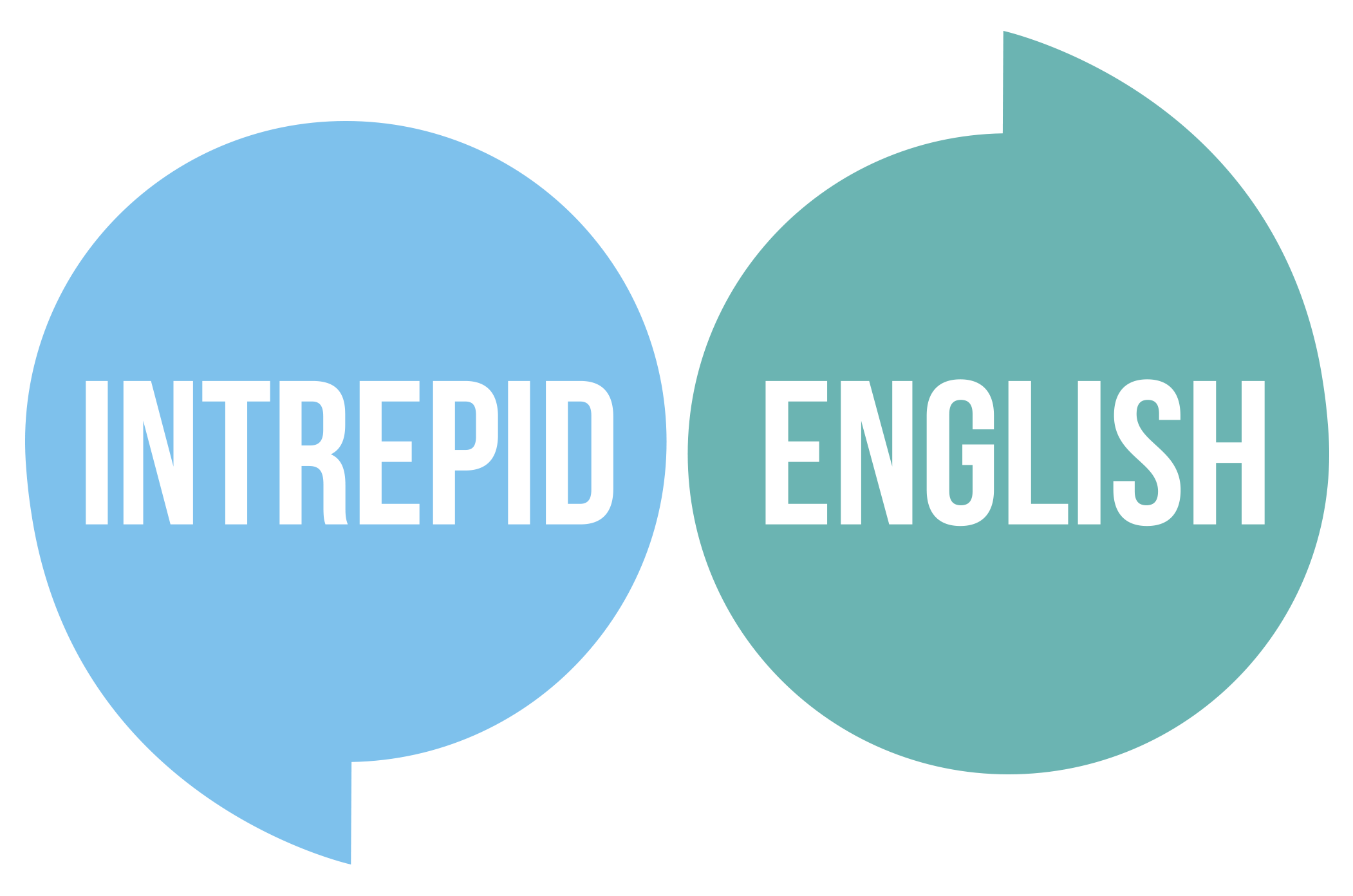
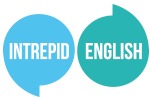
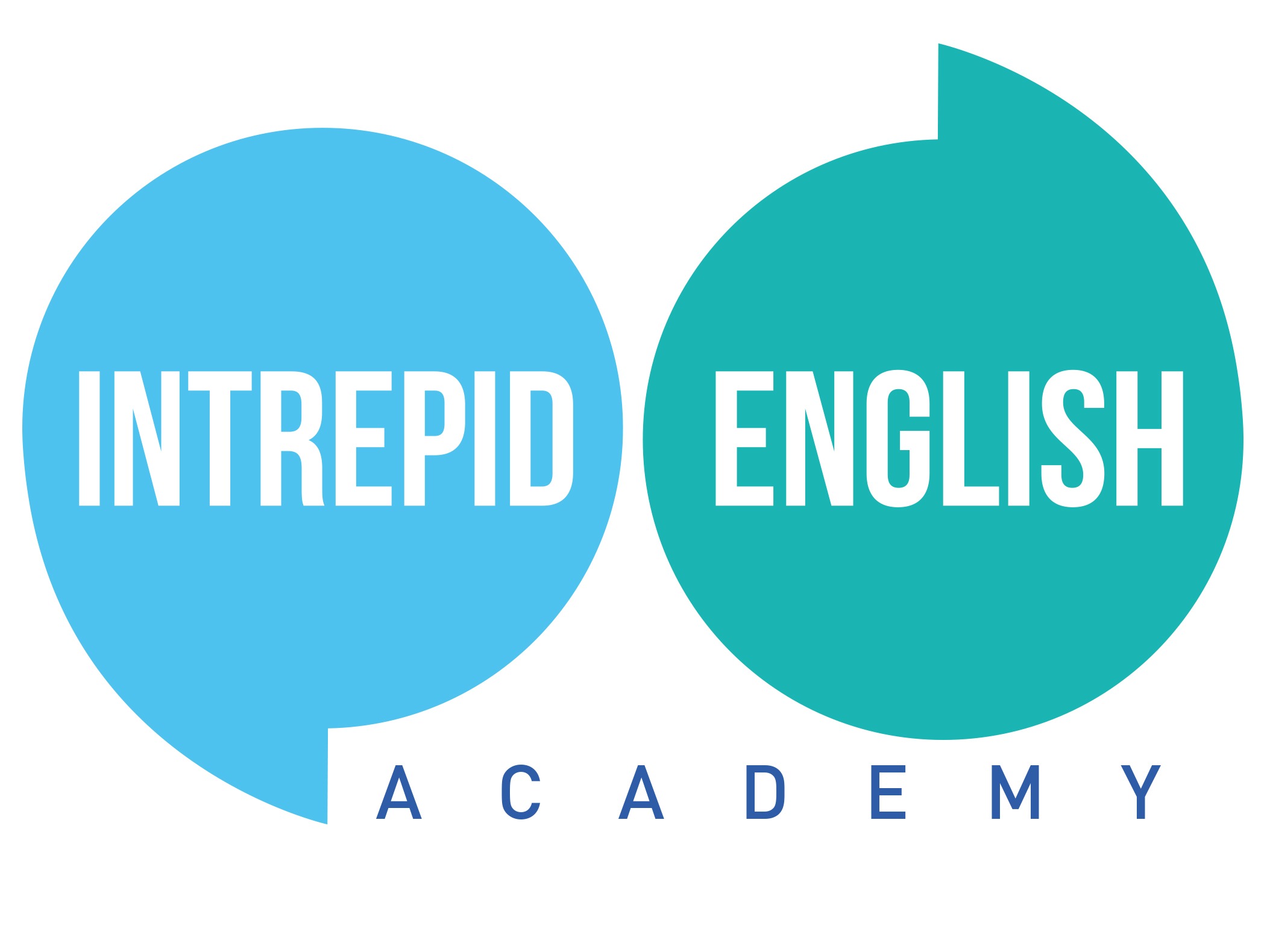
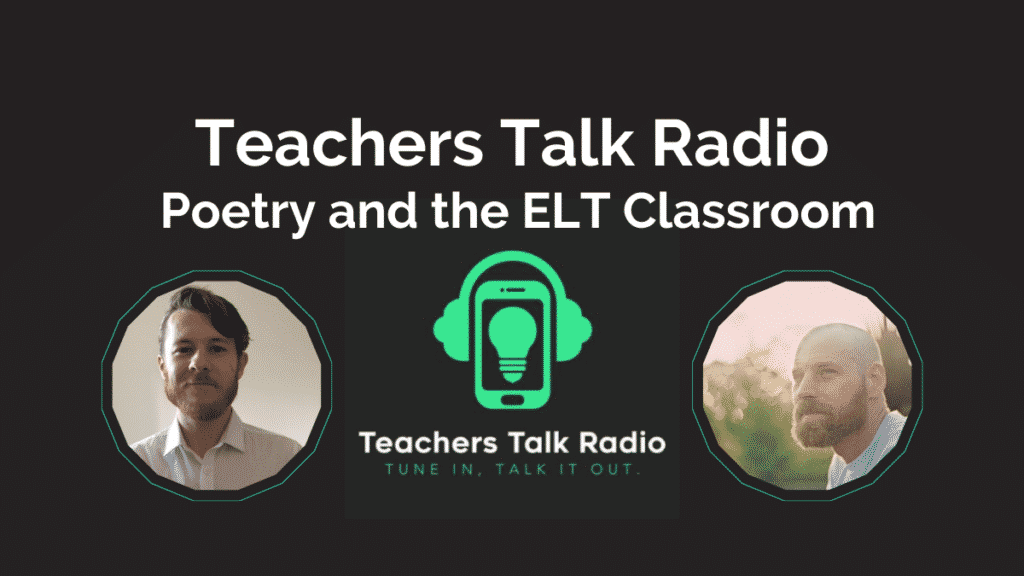
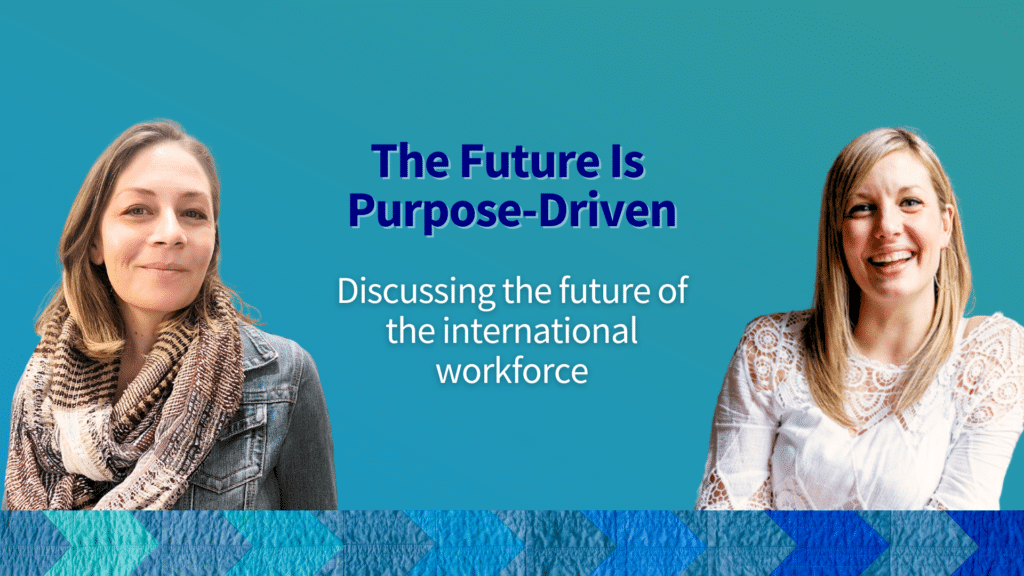
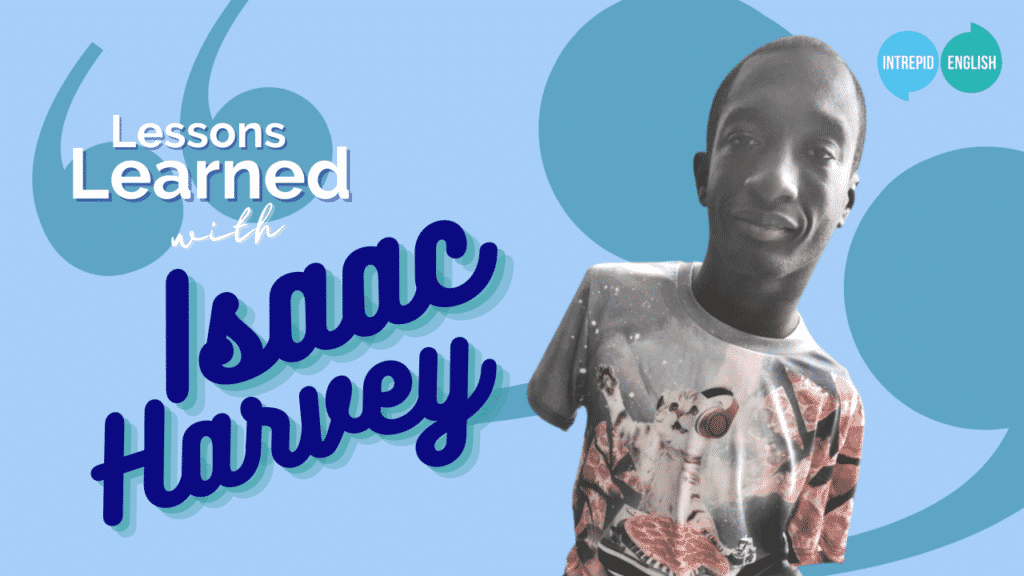
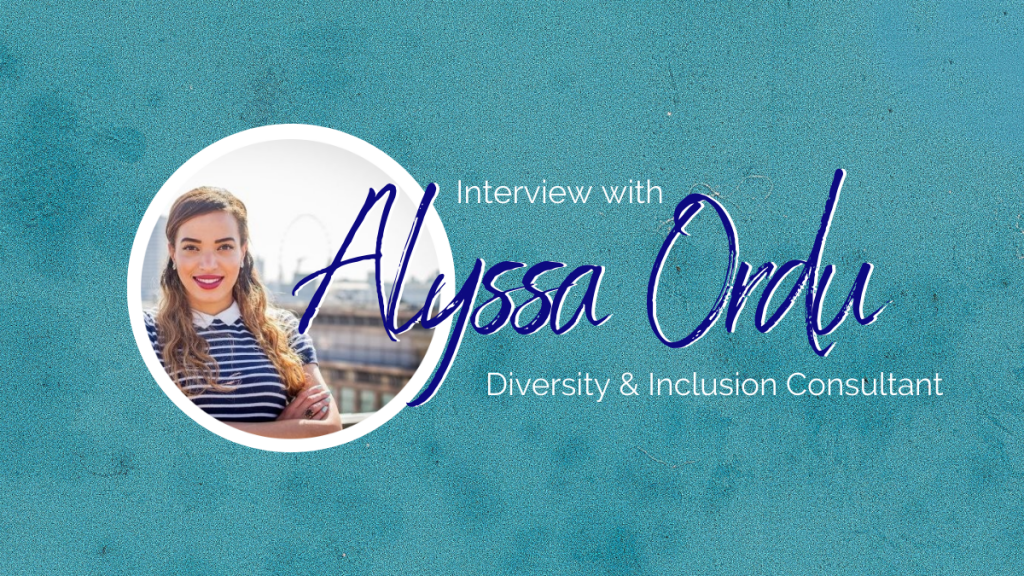
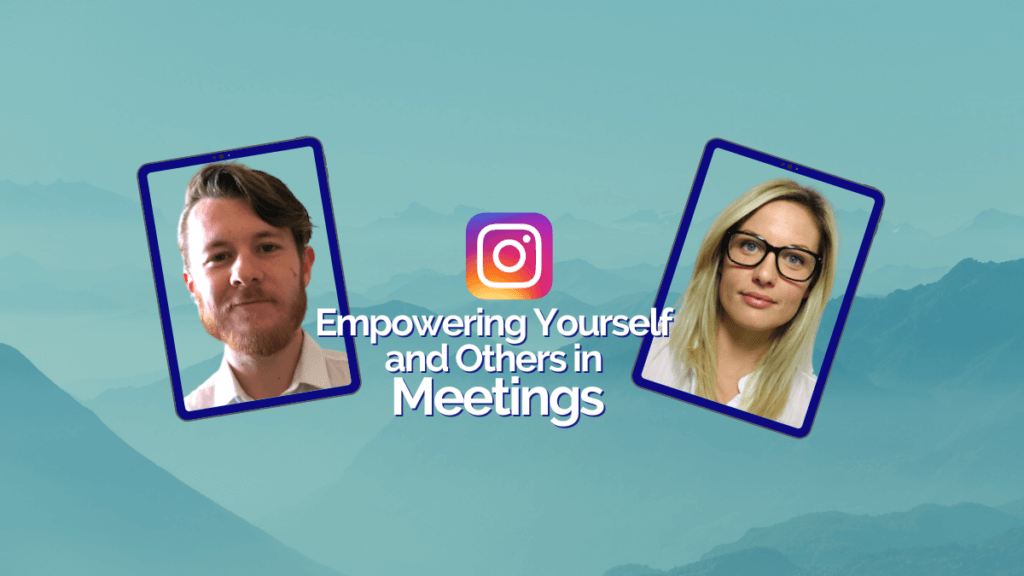
Responses